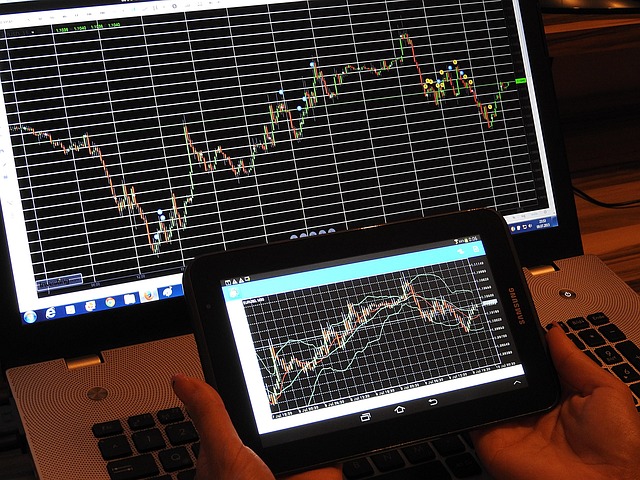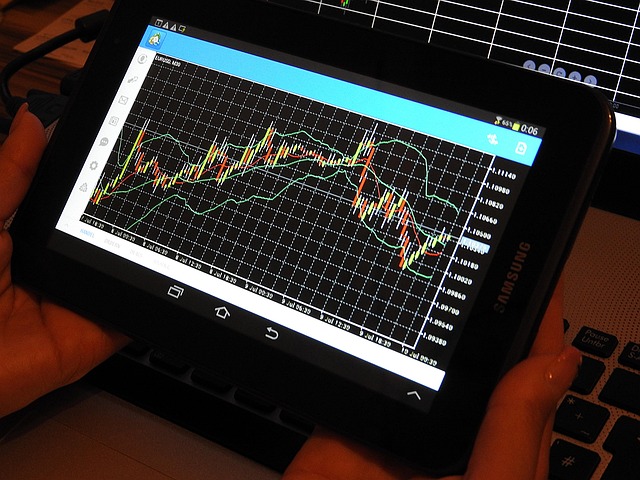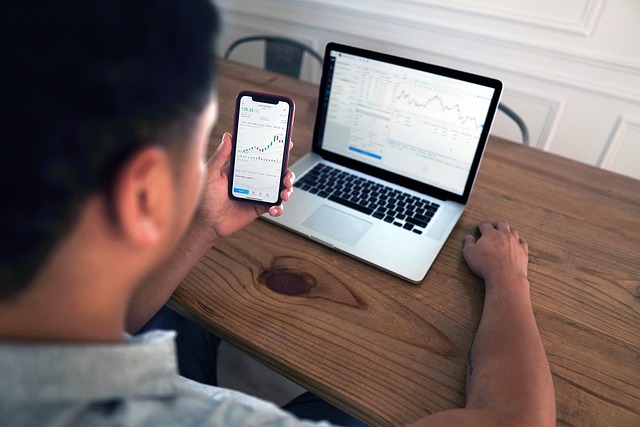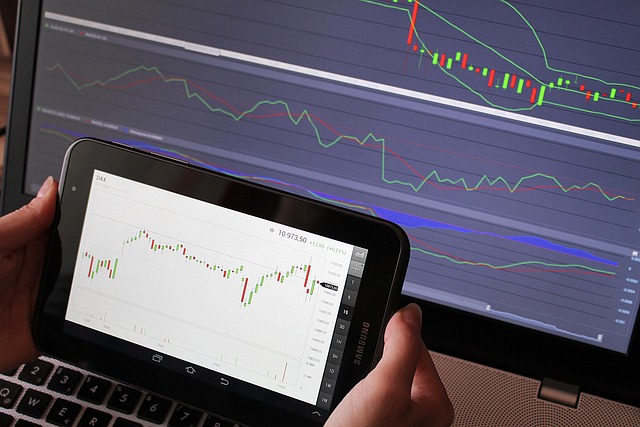Is Forex Trading Halal or Haram in Urdu? Clear Islamic Guide 2025
Author: Jameson Richman Expert
Published On: 2025-11-12
Prepared by Jameson Richman and our team of experts with over a decade of experience in cryptocurrency and digital asset analysis. Learn more about us.
Is forex trading halal or haram in urdu is a frequently searched question among Urdu-speaking Muslims who want to trade currencies but remain within Shariah boundaries. This article summarizes key Islamic principles, reviews scholarly opinions, explains practical conditions that can make forex trading permissible, lists common pitfalls that could render it impermissible, and offers actionable steps — including platform and tool recommendations — to help you trade ethically and compliantly in 2025.

Overview: What is Forex and Why the Shariah Question?
The foreign exchange (forex or FX) market is the global marketplace for trading national currencies. It is the largest financial market in the world by volume and operates 24/5. For a general definition, see the Foreign exchange market (Wikipedia).
The Shariah question arises because Islamic jurisprudence prohibits riba (usury/interest), gharar (excessive uncertainty), and maisir (gambling/speculation). Whether a financial activity is halal (permissible) or haram (forbidden) depends on whether it involves these prohibited elements. For background on Islamic banking and finance principles, see Islamic banking (Wikipedia).
Core Islamic Principles Relevant to Forex
- Riba (Interest): Any guaranteed interest on loaned money is prohibited. In fx, swap fees or overnight interest on leveraged positions may resemble riba.
- Gharar (Excessive Uncertainty): Contracts that are ambiguous or involve undue uncertainty are not allowed.
- Maisir (Gambling/Speculation): Pure gambling or speculative contracts without real economic activity are forbidden.
- Immediate Exchange (Qabd): In classical rulings for currency exchange (sarf), hand-to-hand (immediate) delivery of currencies is required for permissibility.
Types of Forex Trading and Shariah Considerations
Not all forex activities are the same. Understanding the type of trading helps determine Shariah compliance.
1. Spot Forex (Immediate Delivery)
Spot forex involves exchanging one currency for another with immediate settlement (or within two business days). Many scholars consider a cash, spot exchange — where ownership and possession (qabdh) transfer immediately — to be permissible because it is a simple currency exchange, not a loan or derivative contract.
2. Forex with Leverage / Margin Trading
Leverage allows traders to take larger positions by borrowing funds from the broker. This usually incurs financing or swap charges if positions remain open overnight, which often involve interest. Many scholars view leveraged trades with interest-bearing overnight financing as problematic (riba) and/or involving gharar.
3. CFDs and Derivatives on Forex
Contracts for Difference (CFDs) and many derivatives do not involve ownership of the underlying currency — instead, they are contractual claims on price differences. Many jurists classify CFDs and most derivative contracts as impermissible because they involve speculation (maisir) and gharar. See Investopedia’s CFD article for technical details.
4. Islamic / Swap-Free Accounts
Some brokers offer “Islamic” or swap-free accounts that claim to remove overnight interest charges and restructure fees. These can solve the riba issue if implemented transparently, but traders must verify the broker’s implementation and whether hidden fees or replacement commissions amount to the same prohibited interest in another form.

Scholarly Opinions: Diverse But Practical
There is no single unanimous verdict. Different schools and modern scholars have nuanced positions based on contract type and trade mechanics.
- Permissible in principle: Many scholars accept spot forex with immediate exchange and no interest as permissible.
- Problematic or impermissible: Leveraged trading with interest, CFDs, and highly speculative short-term day trading where the activity resembles gambling are commonly regarded as impermissible by many fuqaha (jurists).
- Conditional permissibility: Some scholars allow forex if conditions are met: no riba, immediate exchange, transparency of fees, and avoiding excessive speculation.
For Urdu-speaking audiences, prominent Islamic scholars (including Muftis and boards like Darul Ifta) often reiterate these conditional positions. Always consult a trusted local scholar for a personalized fatwa if in doubt.
Key Conditions to Make Forex Trading Halal (Practical Checklist)
If you want to trade forex but remain within Shariah, apply the following checklist:
- Use Spot Trading or Immediate Settlement: Ensure trades result in actual exchange and ownership of currencies as quickly as possible.
- Avoid Interest-Bearing Financing: Do not use margin or leverage that incurs interest. Use swap-free or Islamic accounts if available, and confirm their mechanics.
- Minimize Speculation: Avoid pure gambling-style trades and extremely short-term pure bets where decisions are random or emotional.
- Be Transparent About Fees: Confirm that any fees are service-based and not disguised interest.
- Prefer Reputable Brokers & Platforms: Use regulated exchanges and reputable brokers. Check their Islamic account options and read terms carefully.
- Keep Records & Intentions Clear: Maintain clear records showing you bought/sold currencies, not traded derivative claims.
- Seek Scholarly Guidance: Obtain advice from a qualified scholar or Shariah advisor experienced in modern finance.
Examples: Halal vs Harām Forex Scenarios
Below are representative examples to illustrate:
- Example 1 — Halal-like: You use your own funds to buy USD with PKR in a spot transaction at the market rate with immediate settlement, then later sell USD for PKR at a profit. No leverage, no interest. Many jurists regard this as permissible.
- Example 2 — Haram-like: You open a margin position using 100x leverage, keep it open overnight and pay swap rates or interest. This involves borrowed funds and riba — widely considered impermissible.
- Example 3 — Likely Haram (CFD): You trade a CFD on EUR/USD where you never own the currency but speculate on price differences. Many scholars classify CFDs as prohibited.

Practical Tools & Platforms (Resources for Urdu Traders)
Choosing the right tools can help you follow halal trading rules. Below are resources for practice, platform selection, and automation. Use them responsibly and verify Shariah compliance before committing funds.
- Paper trading and testnets — practice without risk: see this guide on whether Binance has virtual trading: “Does Binance Have Virtual Trading? Guide to Testnets & Paper Trading” (CryptotradeSignals).
- Trading tools and watchlists — for analysis: learn about TradingView’s delays and what traders must know: “Is TradingView Free & Delayed?” (CryptotradeSignals) and “TradingView Watchlist to Excel 2025 Guide” (CryptotradeSignals) for exporting watchlists.
- Automated strategies and bots — understand automation risk: review the ETH trade bot guide: “ETH Trade Bot Smart Trading Guide” (CryptotradeSignals).
- Compare platforms — find regulated, reliable brokers: see “Highest Crypto Trading Platform Guide 2025” (CryptotradeSignals) for platform comparisons (useful for crypto-to-fiat and forex-like exposures).
Links (examples):
- Does Binance Have Virtual Trading? Guide to Testnets & Paper Trading
- Is TradingView Free & Delayed? What Traders Must Know
- TradingView Watchlist to Excel — 2025 Guide
- ETH Trade Bot — Smart Trading Guide
- Highest Crypto Trading Platform Guide 2025
Recommended Platforms (Registration Links)
If you choose to trade, consider regulated and widely-used platforms. Verify whether they offer Islamic accounts and transparent fee structures:
- Register at Binance — check their futures vs spot account differences and whether swap-free options exist for your country.
- Register at MEXC — an exchange with various spot and derivatives options.
- Register at Bitget — check spot vs derivative accounts carefully.
- Register at Bybit — widely used for crypto derivatives; be cautious about derivatives vs spot trading.
Common Mistakes That Can Make Forex Haram
- Using Interest-Bearing Margin: Relying on leverage that accrues interest or daily swap rates is one of the most common issues.
- Trading CFDs Without Ownership: Many CFD contracts do not involve actual exchange of currencies; they are speculative contracts and often deemed haram.
- Excessive Speculation: Treating the market as a casino — random, emotion-driven trades without analysis — leans toward maisir (forbidden gambling).
- Hidden or Ambiguous Fees: If a broker replaces interest with opaque fees that effectively amount to riba, this is problematic.
- Ignoring Settlement Rules: Not taking delivery or failing to establish actual transfer of currency ownership undermines permissibility.
Case Studies and Fatwas — What Some Authorities Say
While exact fatwas vary by scholar and institution, common themes include:
- Spot trades with immediate delivery: Often permitted, because they resemble classic currency exchange (sarf).
- Margin/leverage trading with interest: Usually prohibited.
- CFDs and swaps: Many jurists caution against them unless structured to eliminate riba and gharar transparently.
Because rulings can differ, many traders obtain local fatwas or consult Shariah boards associated with Islamic financial institutions. If you are Urdu-speaking, consult local Darul Ifta or recognized scholars and present the exact contract terms and broker documents for a precise ruling.

How to Trade Ethically: Practical Steps for Urdu Traders
- Start with Education: Learn market basics from reputable sources, practice on demo accounts (see Binance’s virtual trading guide above), and use technical tools like TradingView (see TradingView articles).
- Use Spot Markets: Trade spot forex where possible and avoid derivatives or CFDs unless ownership and delivery rules are clear.
- Avoid Leverage or Use Swap-Free Accounts: If leveraging is essential, seek a truly swap-free Islamic account and verify the fee structure matches Shariah principles.
- Document Everything: Keep trade confirmations, invoices, and settlement records to demonstrate there was real exchange, not speculative contracting.
- Consult a Scholar: Provide contract documents to a qualified jurist for a tailored ruling.
- Practice on Testnets & Demo Accounts: Use paper trading to sharpen skills without violating principles — see Binance testnet & paper trading guide above.
Alternatives to Direct Forex Trading (Shariah-Friendly Options)
If you find forex trading too complex to make fully compliant, consider alternatives that may be clearer from a Shariah standpoint:
- Currency Exchange Businesses: Actual currency exchange shops that perform spot exchanges for customers are generally permissible if non-interest and transparent.
- Shariah-Compliant Investment Funds: Look for Shariah-compliant funds that invest in permitted assets.
- Long-Term Currency Exposure via Trade or Business: If currencies are held as part of trade (import/export) rather than speculative positions, rulings may differ and often be more acceptable.
Tools for Analysis and Record-Keeping
Good analysis and record-keeping help reduce gharar and demonstrate legitimate intent. Useful tools include:
- Trading platforms like Binance, MEXC, Bitget, and Bybit (links above) for access to markets.
- Charting and watchlists: TradingView (see the TradingView watchlist export guide for workflow tips).
- Backtesting and bots: learn automation carefully and review smart bot guides (see ETH Trade Bot guide).
- Spreadsheet exports and trade logs — export watchlists and trades for audit and clarity (see TradingView watchlist guide).

Frequently Asked Questions (FAQs)
Q: Is using an Islamic or swap-free account enough to make forex halal?
A: Swap-free accounts remove overnight interest charges, which addresses riba. But you must also ensure no hidden fees that replicate interest and avoid excessive speculation. Confirm the broker’s policies and seek scholarly review if needed.
Q: Are CFDs always haram?
A: Many scholars view CFDs as impermissible because they do not confer ownership of the underlying asset and are often speculative. Some jurists permit structured derivatives when they meet strict Shariah conditions, but these are exceptions not the rule.
Q: Can I use leverage if I repay financing immediately?
A: Short-term financing that involves interest is generally problematic. Avoid interest-bearing margin. Some platforms offer margin without traditional interest in limited structures, but these must be vetted by a Shariah advisor.
Q: How do I prove my forex trades were halal?
A: Keep clear trade confirmations, settlement receipts, and account statements showing immediate exchange, no interest, and legitimate fees. Provide these to a scholar for validation.
References & Further Reading
- Foreign exchange market — Wikipedia
- Islamic banking — Wikipedia
- CFD explanation — Investopedia
- ETH Trade Bot Smart Trading Guide — CryptoTradeSignals
- Does Binance Have Virtual Trading? Guide to Testnets & Paper Trading — CryptoTradeSignals
- Highest Crypto Trading Platform Guide 2025 — CryptoTradeSignals
- Is TradingView Free & Delayed? — CryptoTradeSignals
- TradingView Watchlist to Excel 2025 Guide — CryptoTradeSignals
Conclusion: Balanced, Informed, and Cautious
In short, the answer to “is forex trading halal or haram in urdu” is: it depends. Spot forex with immediate delivery, transparency, and no interest can be considered permissible by many scholars. However, leveraged margin trading that accrues interest, CFDs, and highly speculative trading that resembles gambling are commonly regarded as impermissible. The best approach is to educate yourself, use demo/test environments to practice (see the Binance testnet guide), choose reputable platforms carefully, use swap-free or truly Shariah-compliant account structures where available, document trades, and consult a qualified scholar for a conclusive ruling tailored to your situation.
If you want to start practicing without risking money, use demo/testnet platforms (see the Binance virtual trading guide above). When ready to open an account, consider reputable exchanges (links included earlier) and always verify whether they offer transparent Islamic or swap-free options.
May your trading be both profitable and ethically sound. For deeper technical guides on tools and automation that can help with regulated and transparent trading, refer to the resources linked in this article.